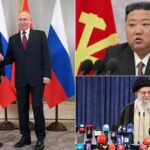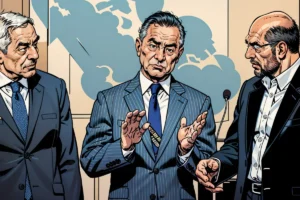History of the bilateral relations
The genesis of the Pakistan-Sri Lanka relations can be found in the cultural connections of Islam and Buddhism. Islam came to the subcontinent in the early 8th century, following the conquest of Sindh by Muhammad bin Qasim, the commander of the Muslim empire, who led an armed campaign to rescue the widows of the Arab settlers in Ceylon (former name of Sri Lanka). Fast forward to the mid-20th century; it is reported that the Muslims of Sri Lanka supported the cause of the All India Muslim League for a separate homeland for the Muslims of the subcontinent. After Pakistan’s independence, East Pakistan (now Bangladesh) constituted a Buddhist minority. On the other hand, Sri Lanka had 6.6 percent Muslim population by the 1950s and currently has 9 percent Muslims. Archeological surveys have traced various sights and symbols of Buddhist civilization and religion, primarily concentrated in Taxila, in the northern Punjab.
Pakistan has demonstrated due respect and appreciation for this heritage and have taken measures to preserve the remnants of the Buddhist civilization and became the first country in 1956 to commemorate the 2500th anniversary of Lord Buddha. Moreover, Pakistan also participated in the world Buddhist conferences in Colombo starting from the 1950s. In 1976, Sri Lanka reciprocated the civilizational gesture by naming a public ground in Colombo as Jinnah Maidan. Local governments in various regions of Sri Lanka also arranged exhibitions of Buddhist antiques and relics from Pakistan, including the inauguration of the Gandhara art exhibition arranged by the Pakistani community in Colombo.
Notwithstanding, the heartwarming historical connections, the cultural affinity got affected after the separation of East Pakistan in 1971 and has almost disappeared ever since the military dictator General Zia-ul-Haq (1977-87) instrumentalised Islam on the national scale. As of now, Prime Minister Imran Khan’s promotion of religious tourism has great potential to revive the cultural affinities and linkages that Pakistan had with other nations and states. .
Nonetheless, one can find solace and take inspiration from the continued political, security and economic bilateral interaction between the two states
Political drivers of the relationship
Sri Lanka and Pakistan are members of the Commonwealth of Nations. Both countries also regularly observe elections and seek to institutionalize the democratic norms and ideals as a prerequisite for democratic governance. They were also members of the Colombo Plan and conveners of the Bandung conferences, sharing the political stance against communism. When Sri Lanka assumed the chairmanship of the Non-aligned Movement (NAM), Pakistan became its full-fledged member in 1979.
Generally, there have been infrequent visits of the political heads of states from the two sides. Relations with Sri Lanka may well be analyzed in the general framework of Pakistan’s Indo-Pacific policy, which tends to vary from being non-existent to once in five-year term engagement.
The only exception may have been the defense and security aspects of the relationship.
Defense and Security Links of the Relationship
Almost all the smaller South Asian states are confronted with the dire consequences of India’s offensive military doctrines and strategies towards neighboring states. Given, India’s preponderance and aspirations to become a regional hegemon, these concerns can only be dismissed at one’s own peril. Sri Lanka’s northern region and India’s southern region is inhibited by the Tamil populations. It is also an open secret that New Delhi exerts political influence so as to pressurize Colombo to ensure political and economic rights of the Lankan Tamils and has covertly fueled the Tamil uprisings in Sri Lanka.
The threat from India might have propelled Sri Lanka to join the U.S.-led alliance of SEATO and CENTO, just like Pakistan which also saw these US-led pacts as a means to bolster its security against India. Later, during the 1971 crisis in East Pakistan, when India blocked West Pakistan’s overflight through the Indian airspace, Sri Lanka stepped in and granted the Pakistani civilian and military airplanes stopover and landing rights. However, the author could not find any evidence of military aircrafts making stopovers in Sri Lanka for refueling or other services during war in late 1971. Furthermore, Sri Lanka has observed a neutral stance on the Kashmir issue and India-Pakistan’s conflict. That leaves us with the single essential element of security, namely terrorism that set the tone of relations or laid the foundation for an expansion in the bilateral defense ties of Pakistan and Sri Lanka.
The Tamils of the northern and eastern parts of Sri Lanka formed a rebel group, Liberation Tigers of Tamil Eelam (LTTE), in 1975, for curving out a separate state for the Tamil population. Pakistan has supplied Sri Lanka with fighter jets and military training and support that successfully defeated the LTTE terrorists.
Later, when Pakistan was engulfed in the terrorist strikes nationwide, from 2007 to 2014, it reportedly sought Sri Lanka’s support in military training for its counter-insurgency operations.
The cooperation in getting rid of terrorism paved the way for strong defense relations between the two countries. In 2016, Pakistan signed an agreement with Sri Lanka to provide eight JF-17 fighter aircraft. Pakistani and Sri Lankan armed and naval forces have also been through port calls, military, and defense workshops and seminars.
Later in 2020, during his visit to Sri Lanka, former US Secretary of State Mike Pompeo has remained focused on establishing strategic ties with Sri Lanka and has invited it to join Quad- a multilateral alliance forged to ensure security in Indian Ocean’ region. The alliance is comprised of Australia, India, Japan and US. Pompeo stated, “We see from bad deals, violations of sovereignty and lawlessness on land and sea that the Chinese Communist Party is a predator, and the United States comes in a different way, we come as a friend, and as a partner”. Significantly, when Sri Lanka and China agreed to lease the Hambantota port to Sri Lanka for 99 years, other states like Japan and India tried to initiate similar projects for strategic objectives. In contrast, Pakistan did not seek to press Sri Lanka or other smaller regional states in pursuit of its strategic interests through military initiatives like the Indo-Pacific strategy. Hence, a shared diplomatic stance on emerging regional security and strategic dynamics has played a crucial role in further advancing their defense ties.
Another diplomatically significant but financially low-valued aspect of the relationship might be economic cooperation.
Significance of the bilateral relationship in economy
Pakistan has Free Trade Agreements (FTA) with only three countries, China, Malaysia, and Sri Lanka. Interestingly, it is only with Sri Lanka that Pakistan a trade surplus. Both countries signed the FTA in 2002 that came into effect in 2005, and the phasing out process by the two countries ended in 2010. Sri Lanka got duty-free access over the 206 items, including tea, rubber, and coconuts. Pakistan received zero-tariff concessions over 102 articles, including oranges, basmati rice, and engineering products.
Pakistan’s top three exports to Sri Lanka include cotton, pharmaceutical goods, and mineral manufactured items. Sri Lanka’s top three exports to Pakistan have been a) ships, boats and floating materials; b) vegetable items, including tea, coffee, and pulses; and, c) rubber or rubber-made items.
Although, the financial value of the economic relationship may appear to be modest, the diplomatic significance of the FTA is enormous given that it has the potential to strengthen bilateral ties of Pakistan and Sri Lanka.
Prime Minister Imran Khan’s Sri Lanka visit: Game Changer
Prime Minister Imran Khan’s first visit to Sri Lanka in February 2021 is viewed from the prism of India’s offensive strategy towards regional states and Pakistan’s proactive strategy aimed at regional stability. During the two-day visit Imran Khan highlighted the prospects of a bilateral strategic partnership between Islamabad and Colombo. PM Khan urged his counterpart to join the multi-billion-dollar China-Pakistan Economic Corridor (CPEC), the flagship project of Beijing’s Belt and Road Initiative (BRI). While addressing a joint press conference with his Sri Lankan counterpart Mahinda Rajapaksa, Prime Minister Imran Khan said, “My visit aims to strengthen bilateral relationship [with Sri Lanka], especially trade and economic ties through enhanced connectivity.”
During the visit, both states agreed to further enhance bilateral relations through investment, trade, technology, science, tourism and culture and agreed to boost connectivity to achieve this end. Thus, both states signed several Memorandums of Understanding (MoU) pertaining to these areas of mutual interests. The MoUs signed between Pakistan and Sri Lanka during Imran Khan’s February visit include:
- MoU on cooperation in tourism.
- MoU between the Boards of Investment.
- MoU between Sri Lanka’s Industrial Technology Institute (ITI) and Karachi University’s International Centre for Chemical and Biological Sciences.
- The intent of cooperation between ITI and Comsats University Islamabad.
- MoU between University of Colombo and Lahore School of Economics.
Subsequently, Pakistan and Sri Lanka agreed to collaborate in higher education. Pakistan announce 100 scholarships for Sri Lankan students as part of the Pakistan-Sri Lanka Higher Education Cooperation Programme.
Both Pakistan and Sri Lanka have been targets of radical terrorist groups and extremism due to multiple endogenous and exogenous factors. These include terror financing by hostile countries like India to foment unrest and exploitation of internal sectarian cleavages by vested interest groups for parochial purposes. .Predictably, the turmoil and civil war in Afghanistan had a spillover impact on regional security. Escalating terrorist attacks in Sri Lanka instigate instability and insecurity in the country. During his visit, Prime Minister Imran Khan announced a US$ 50 million for defense purchases. The two countries also agreed to increase cooperation in countering terrorism and systematic crimes. Pakistan has initiated a series of military operations and effectively countered the menace of terrorism and extremism. Thus Pakistan can help Sri Lanka in combating terrorism and extremism drawing on its own experience. In this regard, Pakistan can help by sharing expertise in developing an effective mechanism to counter-terrorism and strengthening criminal justice institutions.
In fact, Pakistan and Sri Lanka are brought together among others by their geopolitical, economic, and security interests in the region. Therefore, Pakistan desires to enhance ties with Sri Lanka through economic and regional connectivity and this can be ensured if Sri Lanka becomes part of CPEC. This will help cement the ties and enable the two countries to beneficially promote regional connectivity and achieve economic growth and development. .
Consequently, the strategic troika comprising Pakistan-Sri Lanka and China can offset the growing concerns of regional states regarding Quad. Therefore, evolving Pakistan and Sri Lanka ties are marked as more practical and focused on bilateral cooperation aimed at overcoming the emerging geo-economic challenges. In particular, Pakistan’s assistance to Sri Lanka during civil war highlights the tactical or strategic nature of the relations. In short, the Pakistan-Sri Lanka axis will further grow through bilateral cooperation; additionally, the prospects to connect China’s CPEC projects, economic and military engagements highlights that bilateral relations can be a game-changer in the region.
The growing role of India in the security architecture of the region and Indo-US strategic alliance is the concern of all the South Asian states. Thus, to maintain regional stability and further enhance bilateral cooperation following policy measures are recommended:
Policy Recommendations
- Increased State level Visits
The visits must aim to enhance and develop bilateral relations in the areas ranging from human rights, economy, trade, environmental protection, climate change, cultural contacts etc. Therefore, frequent state to state visits between Islamabad and Colombo can play a significant role in further improving economic, political and military ties.
- Regional Cooperation through SAARC
Cooperative regional organizations engaging in non-political or low-political spheres such as technical, social, economic, cultural and scientific sectors provide vastly practical opportunities for building effective cooperation among the member states. Hence, it can play an effective role in bilateral cooperation and regional development. PM Imran Khan’s vision of regional connectivity can be achieved through SAARC because of the mutual advantage for the participating states.
- Enhanced cooperation in security, counter-terrorism and organized crime
Pakistan and Sri Lanka are the victims of terrorism and extremism. A bilateral security framework based on defense cooperation can provide adequate solutions to existing terrorism and regional security challenges.
- Sports Diplomacy
Sports can be used as a political tool to enhance bilateral relations among states. Cricket is the most famous and widely played game in South Asia and can be used as a political tool to strengthen bilateral diplomatic relations. Even during his visit to Sri Lanka, Prime Minister Imran Khan also exercised sports diplomacy and had an interactive session with the sports community of Sri Lanka.
Conclusion
Pakistan-Sri Lanka relations are based on cultural links, defense cooperation, and economic diplomacy. All of these segments of the relationship operate at a low scale currently. Both countries can coordinate to expand, deepen and strengthen each of these elements, given that the political will leads to policy formulation and execution. Sri Lanka will indeed face pressure from India to expand ties with regional states, but Colombo can find a balance, given its experience of doing so between China and India. Pakistan should revive the tradition of commemorating the anniversary of Lord Buddha and further advertise its Buddhist tourism sites. Both countries can also exploit the prevailing FTA and expand the bilateral trade. All of it only demands further policy reorientation.















